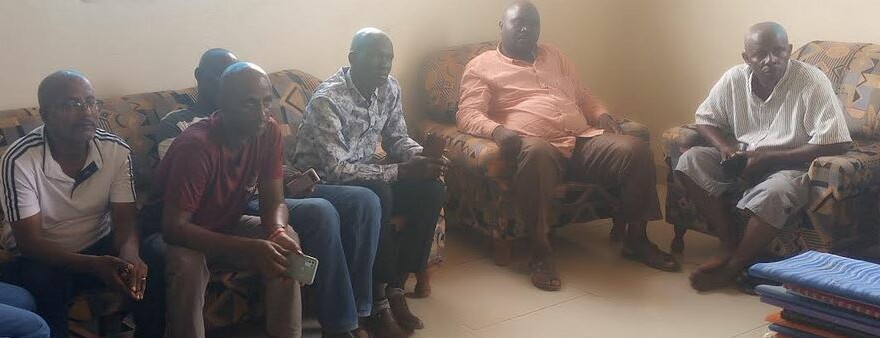After an emergency meeting with the Eastern Equatoria State Ministry of Trade and Industry, traders in Torit town on Thursday agreed to reduce commodity prices by 30 percent following the South Sudanese Pound (SSP) gaining against the U.S. dollar.
Currently, USD 100 has fallen to SSP 170,000 in Torit compared to a few days ago when it was at USD 200,000 to SSP 210,000.
The traders attributed skyrocketing commodity prices to the weak local currency.
Mulinda John, the representative of the Ugandan Business Community in Torit, confirmed to Radio Tamazuj that traders agreed to reduce commodity prices by 30 percent but said high fuel prices contribute to a hike in commodity prices. He appealed to the government to tackle fuel prices as well.
“Since the director general of the state trade ministry has told us to reduce the prices and has assured us that the government is going to work on the dollar issue, we the traders shall abide by the law and continue reducing prices as the dollar also keeps reducing,” he said. “However, we are urging the government to work to reduce fuel prices because it costs us a lot to transport goods.”
For his part, Mark Barasa, the chairperson of the Kenyan Business Community in Torit, also expressed readiness to reduce prices but urged the government, through the Central Bank, to allocate hard currency to traders.
He also appealed to fuel dealers and boda-boda riders to reduce prices to ease the transportation of goods to increase supply.
“The dollar has been too high for the last few weeks. As a trader, I need to have hard currency, not pound, to import goods and that is why most people are searching for the dollar,” he said. “It would be better if a certain amount is given to the Central Bank to give to traders so that we manage business better.”
A Somali trader who only identified himself as Deef said citizens and dollar dealers should be educated on the official exchange rate for prices to remain stable. He added that there is no fixed exchange rate in Torit as most forex dealers charge arbitrarily and urged the government to monitor the exchange rate in the state.
“The issue of the expensive dollar is our major problem and many people do not know this. Therefore, citizens, the business community, and the government in collaboration with the chamber of commerce, should sound an alarm when the dollar rate rises in the market and even in the banks,” he stated. “Nobody should change a dollar at SSP 190 or 200. The government should fix the dollar exchange rate in the Bank and the black market should follow the same rate and everybody should know it.”
Deef added: “So when it is announced that traders should reduce prices if dollar dealers do not reduce, the government should do something.”
Meanwhile, Stephen Ihude, the director general of the state trade ministry, warned that those found violating the agreement to reduce prices by 30 percent will be held accountable.
“The dollar rate has reduced since the beginning of this week. It had reached SSP 200 plus but is currently trading between SSP 170 and 180,” he said. “The prices of commodities should match the dollar rate and now that the dollar has fallen by between 30 and 40 percent, you traders should therefore reduce prices by the same percentage.”
“If you do not reduce the prices according to this percentage, we shall carry out an operation,” Ihude warned.




